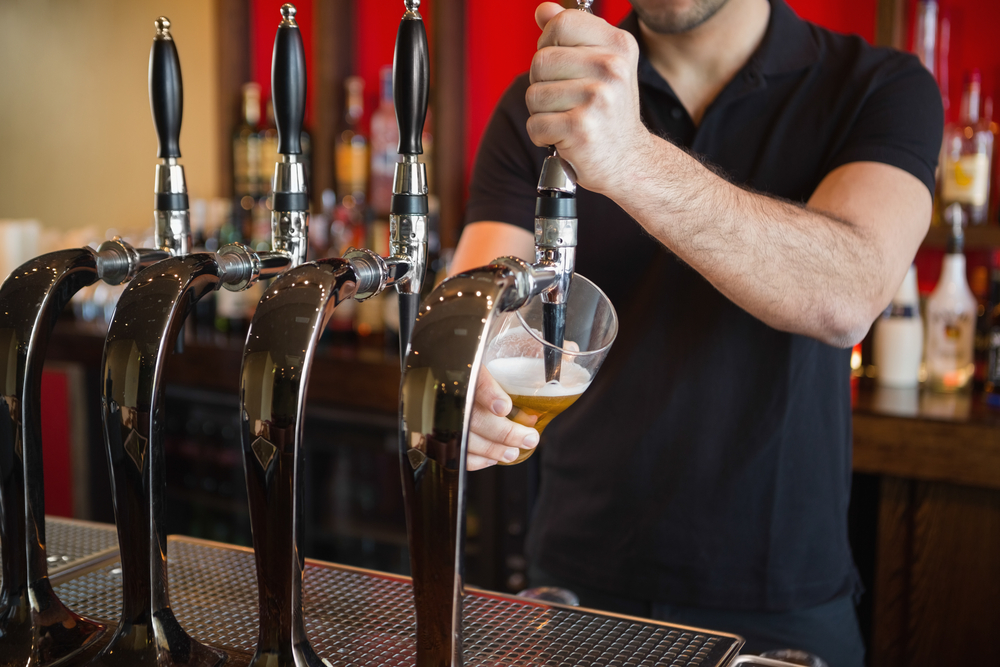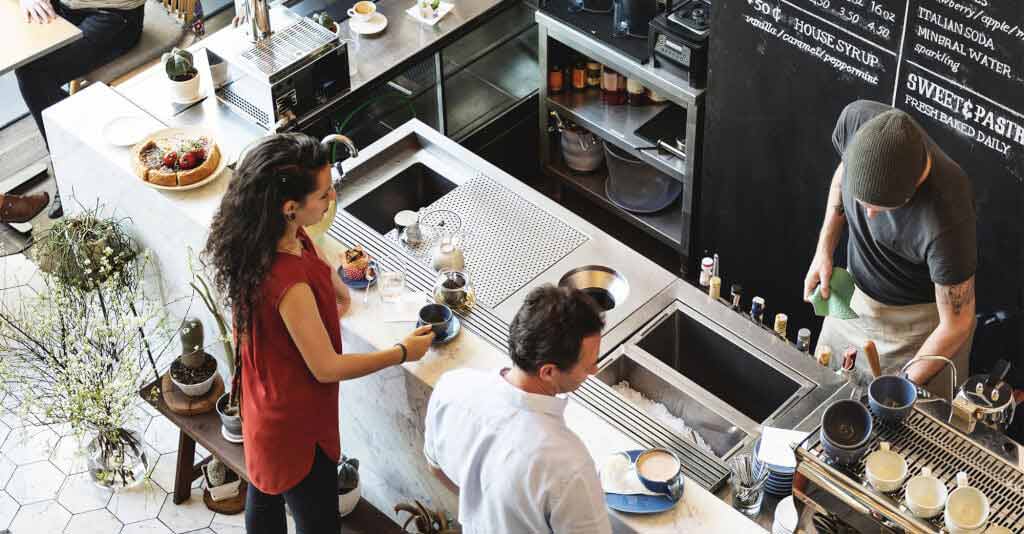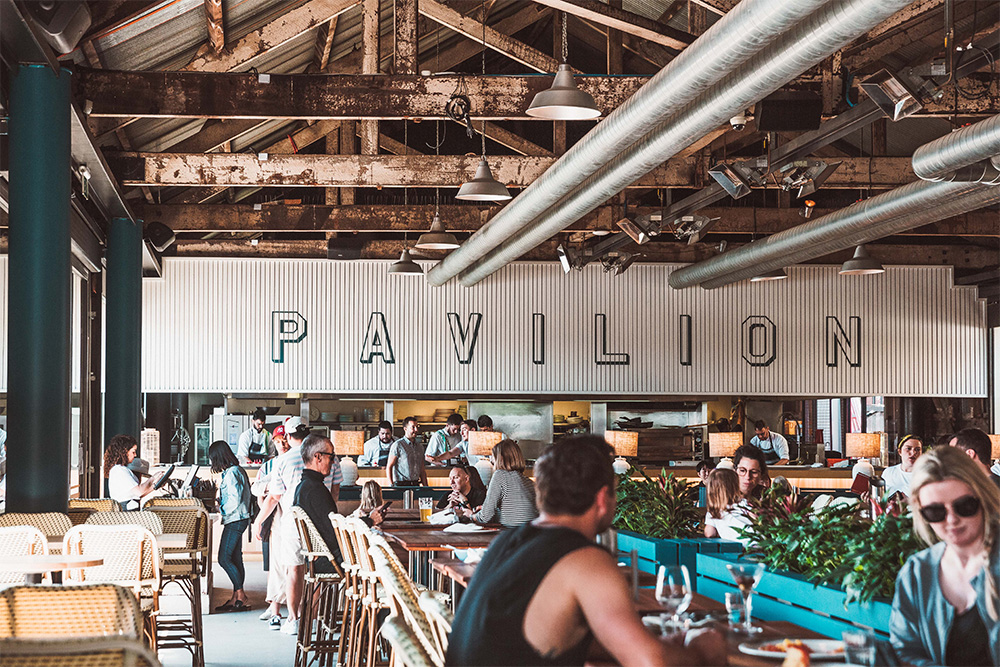Pubs and clubs make for distinct hospitality settings, with each having its own style and formalities. They are perfect spots for events of all sizes, with expectations ranging from a casual affair, to more formal dining.
With seating arrangements, menus, opening/closing times and everything else subject to change – depending on the venue or event at hand – these venues often require a table management system that helps them adapt to changing circumstances. There’s a few ResDiary functions and features that may be beneficial for these venues in setting up their diary for a big day or evening ahead.
“For that day, we had to make sure that we could maximise table occupancy, while divvying out reservations in a manageable way”
A table management diary is set up so staff can manage the venue smoothly, with as much logistical legwork taken away from staff as possible. If the venue runs the same menu – or the tables are fixed – little needs changing within the diary, beyond processing bookings.
But, the flexible nature of ResDiary’s table management system means that the diary can be changed or modified to suit new or changing plans. It can be set up so changes can be made without altering the usual template. Once the shift or event is over, the diary will revert back to business-as-usual.
ResDiary’s ANZ Customer Support Lead Declan O’Toole says the support team regularly works with venues that need changes to their diary prior to an event. He cites a recent example of a lifesaving club that hosted a New Years Eve Party.
“The lifesaving club was located by the pier, and the first set of New Year’s Eve fireworks were to happen at 9pm. Then, the next set of fireworks were happening at midnight. We needed to change the venue’s [opening and closing times, menus and everything else around this],” O’Toole says.
“The venue ran [set menus], so we coordinated with the kitchen. We opened bookings at 7pm with a maximum two-hour seating duration so they would finish before 9pm. We had the same seating duration for the later sitting, starting after 9pm, which had to finish before the midnight fireworks. Everyone was booked in at a particular time, so they could enjoy the fireworks two hours from then.”
O’Toole adds that the team had to install two different menus into the diary. The earlier seating time was more kid-friendly, while the latter time included a wine package.
“With ResDiary, we taught staff how to change the diary for one night only. We also saved the [New Year Eve] session, so they could do it again in the future. Now that [the custom-made diary] is built into the system, the venue won’t need the same level of assistance in the future,” he says.
“It’s not just lifesaving venues that might alter their diary for a particular event. Ahead of Valentines Day, a restaurant might change their table arrangement so they have more [two-person] tables. For Mothers Day, they might join tables together in anticipation of family bookings.
“At pubs and clubs, events are frequently happening, so we do our best to ensure the kitchen isn’t overwhelmed, and the booking times are spread out in a manageable way.”
“Reiterate the fun they had, and welcome them back next year.”
If the patrons attending a particular event allow staff to retain their details, the data provided can be used as a valuable marketing and promotional tool for the venue.
For instance, the lifesaving venue referenced above can pull up the database of New Years Eve attendees. From there, they could alert them of specials and events and, when the time comes around, invite them to the next New Years Eve party. O’Toole says the venue also has the option of providing updates to customers via email, or SMS message.
“It’s visually and aesthetically pleasing to customise an email so it’s beautifully branded with the menu. Using the database to advertise events is a strategic thing for venues to do, as customers who previously attended might be looking forward to returning,” he says.
“Post-dining emails can also be useful for venues in receiving feedback, and encouraging online reviews might help to boost their digital presence.
“These reviews should help the venue keep their food and service to a high standard … potentially leading to more business.”
“Nothing we haven’t been able to handle”
O’Toole says the support team haven’t received a request that they haven’t been able to handle. For pubs and clubs, they can adapt or modify their diary for private or public events without fear that it will mess up their platform.
And, if staff are having any difficulties using ResDiary, they can get in touch with the support team, who can guide them through the process.
“ResDiary is an intuitive experience, and we are more than happy to help staff with training if requested. We can also answer questions regarding close-outs, promotions and anything else, so everyone knows what they are doing,” he says.
“It’s always fun to create a diary that meets the unique specifications of the venue at hand.”
No matter what dining experience a particular pub or club venue has to offer, ResDiary’s support team can help them organise, or even increase the number of bookings. They can also help the venue make changes on a whim, and in a way that suits their requests and requirements. Get in touch with the support team, and see how they can help your venue.
Find out how your pub or club can use ResDiary at your very own demo
Disclaimer: This guide is general in nature and does not take into account your individual circumstances. Before acting on any information, you should consider whether this is right for your business.




